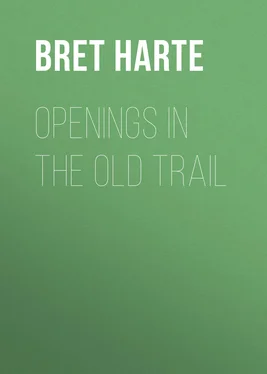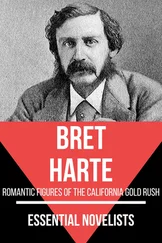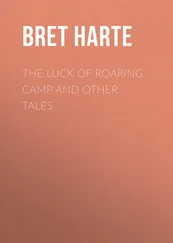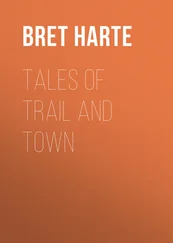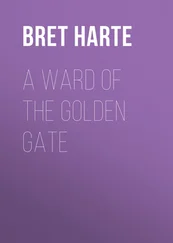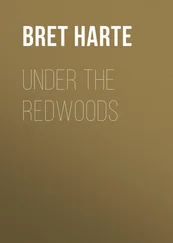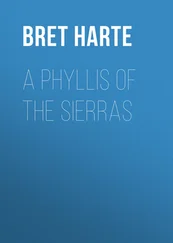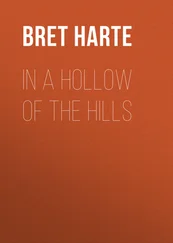Bret Harte - Openings in the Old Trail
Здесь есть возможность читать онлайн «Bret Harte - Openings in the Old Trail» — ознакомительный отрывок электронной книги совершенно бесплатно, а после прочтения отрывка купить полную версию. В некоторых случаях можно слушать аудио, скачать через торрент в формате fb2 и присутствует краткое содержание. Жанр: foreign_sf, literature_19, foreign_antique, foreign_prose, на английском языке. Описание произведения, (предисловие) а так же отзывы посетителей доступны на портале библиотеки ЛибКат.
- Название:Openings in the Old Trail
- Автор:
- Жанр:
- Год:неизвестен
- ISBN:нет данных
- Рейтинг книги:3 / 5. Голосов: 1
-
Избранное:Добавить в избранное
- Отзывы:
-
Ваша оценка:
- 60
- 1
- 2
- 3
- 4
- 5
Openings in the Old Trail: краткое содержание, описание и аннотация
Предлагаем к чтению аннотацию, описание, краткое содержание или предисловие (зависит от того, что написал сам автор книги «Openings in the Old Trail»). Если вы не нашли необходимую информацию о книге — напишите в комментариях, мы постараемся отыскать её.
Openings in the Old Trail — читать онлайн ознакомительный отрывок
Ниже представлен текст книги, разбитый по страницам. Система сохранения места последней прочитанной страницы, позволяет с удобством читать онлайн бесплатно книгу «Openings in the Old Trail», без необходимости каждый раз заново искать на чём Вы остановились. Поставьте закладку, и сможете в любой момент перейти на страницу, на которой закончили чтение.
Интервал:
Закладка:
“I believe,” said the Colonel loftily, “that the—er—phrases of sacred psalmody lend themselves to the language of the affections. But in regard to the distinct promise of marriage—was there—er—no OTHER expression?”
“Marriage Service in the prayer-book—lines and words outer that—all marked,” Zaidee replied.
The Colonel nodded naturally and approvingly. “Very good. Were others cognizant of this? Were there any witnesses?”
“Of course not,” said the girl. “Only me and him. It was generally at church-time—or prayer-meeting. Once, in passing the plate, he slipped one o’ them peppermint lozenges with the letters stamped on it ‘I love you’ for me to take.”
The Colonel coughed slightly. “And you have the lozenge?”
“I ate it.”
“Ah,” said the Colonel. After a pause he added delicately, “But were these attentions—er—confined to—er—sacred precincts? Did he meet you elsewhere?”
“Useter pass our house on the road,” returned the girl, dropping into her monotonous recital, “and useter signal.”
“Ah, signal?” repeated the Colonel approvingly.
“Yes! He’d say ‘Keerow,’ and I’d say ‘Keeree.’ Suthing like a bird, you know.”
Indeed, as she lifted her voice in imitation of the call, the Colonel thought it certainly very sweet and birdlike. At least as SHE gave it. With his remembrance of the grim deacon he had doubts as to the melodiousness of HIS utterance. He gravely made her repeat it.
“And after that signal?” he added suggestively.
“He’d pass on.”
The Colonel again coughed slightly, and tapped his desk with his penholder.
“Were there any endearments—er—caresses—er—such as taking your hand—er—clasping your waist?” he suggested, with a gallant yet respectful sweep of his white hand and bowing of his head; “er—slight pressure of your fingers in the changes of a dance—I mean,” he corrected himself, with an apologetic cough—“in the passing of the plate?”
“No; he was not what you’d call ‘fond,’” returned the girl.
“Ah! Adoniram K. Hotchkiss was not ‘fond’ in the ordinary acceptance of the word,” noted the Colonel, with professional gravity.
She lifted her disturbing eyes, and again absorbed his in her own. She also said “Yes,” although her eyes in their mysterious prescience of all he was thinking disclaimed the necessity of any answer at all. He smiled vacantly. There was a long pause. On which she slowly disengaged her parasol from the carpet pattern, and stood up.
“I reckon that’s about all,” she said.
“Er—yes—but one moment,” began the Colonel vaguely. He would have liked to keep her longer, but with her strange premonition of him he felt powerless to detain her, or explain his reason for doing so. He instinctively knew she had told him all; his professional judgment told him that a more hopeless case had never come to his knowledge. Yet he was not daunted, only embarrassed. “No matter,” he said. “Of course I shall have to consult with you again.”
Her eyes again answered that she expected he would, and she added simply, “When?”
“In the course of a day or two;” he replied quickly. “I will send you word.”
She turned to go. In his eagerness to open the door for her, he upset his chair, and with some confusion, that was actually youthful, he almost impeded her movements in the hall, and knocked his broad-brimmed Panama hat from his bowing hand in a final gallant sweep. Yet as her small, trim, youthful figure, with its simple Leghorn straw hat confined by a blue bow under her round chin, passed away before him, she looked more like a child than ever.
The Colonel spent that afternoon in making diplomatic inquiries. He found his youthful client was the daughter of a widow who had a small ranch on the cross-roads, near the new Free-Will Baptist Church—the evident theatre of this pastoral. They led a secluded life, the girl being little known in the town, and her beauty and fascination apparently not yet being a recognized fact. The Colonel felt a pleasurable relief at this, and a general satisfaction he could not account for. His few inquiries concerning Mr. Hotchkiss only confirmed his own impressions of the alleged lover,—a serious-minded, practically abstracted man, abstentive of youthful society, and the last man apparently capable of levity of the affections or serious flirtation. The Colonel was mystified, but determined of purpose, whatever that purpose might have been.
The next day he was at his office at the same hour. He was alone—as usual—the Colonel’s office being really his private lodgings, disposed in connecting rooms, a single apartment reserved for consultation. He had no clerk, his papers and briefs being taken by his faithful body-servant and ex-slave “Jim” to another firm who did his office work since the death of Major Stryker, the Colonel’s only law partner, who fell in a duel some years previous. With a fine constancy the Colonel still retained his partner’s name on his doorplate, and, it was alleged by the superstitious, kept a certain invincibility also through the ‘manes’ of that lamented and somewhat feared man.
The Colonel consulted his watch, whose heavy gold case still showed the marks of a providential interference with a bullet destined for its owner, and replaced it with some difficulty and shortness of breath in his fob. At the same moment he heard a step in the passage, and the door opened to Adoniram K. Hotchkiss. The Colonel was impressed; he had a duelist’s respect for punctuality.
The man entered with a nod and the expectant inquiring look of a busy man. As his feet crossed that sacred threshold the Colonel became all courtesy; he placed a chair for his visitor, and took his hat from his half reluctant hand. He then opened a cupboard and brought out a bottle of whiskey and two glasses.
“A—er—slight refreshment, Mr. Hotchkiss,” he suggested politely.
“I never drink,” replied Hotchkiss, with the severe attitude of a total abstainer.
“Ah—er—not the finest Bourbon whiskey, selected by a Kentucky friend? No? Pardon me! A cigar, then—the mildest Havana.”
“I do not use tobacco nor alcohol in any form,” repeated Hotchkiss ascetically. “I have no foolish weaknesses.”
The Colonel’s moist, beady eyes swept silently over his client’s sallow face. He leaned back comfortably in his chair, and half closing his eyes as in dreamy reminiscence, said slowly: “Your reply, Mr. Hotchkiss, reminds me of—er—sing’lar circumstance that—er—occurred, in point of fact—at the St. Charles Hotel, New Orleans. Pinkey Hornblower—personal friend—invited Senator Doolittle to join him in social glass. Received, sing’larly enough, reply similar to yours. ‘Don’t drink nor smoke?’ said Pinkey. ‘Gad, sir, you must be mighty sweet on the ladies.’ Ha!” The Colonel paused long enough to allow the faint flush to pass from Hotchkiss’s cheek, and went on, half closing his eyes: “‘I allow no man, sir, to discuss my personal habits,’ declared Doolittle, over his shirt collar. ‘Then I reckon shootin’ must be one of those habits,’ said Pinkey coolly. Both men drove out on the Shell Road back of cemetery next morning. Pinkey put bullet at twelve paces through Doolittle’s temple. Poor Doo never spoke again. Left three wives and seven children, they say—two of ‘em black.”
“I got a note from you this morning,” said Hotchkiss, with badly concealed impatience. “I suppose in reference to our case. You have taken judgment, I believe.”
The Colonel, without replying, slowly filled a glass of whiskey and water. For a moment he held it dreamily before him, as if still engaged in gentle reminiscences called up by the act. Then tossing it off, he wiped his lips with a large white handkerchief, and leaning back comfortably in his chair, said, with a wave of his hand, “The interview I requested, Mr. Hotchkiss, concerns a subject—which I may say is—er—er—at present NOT of a public or business nature—although LATER it might become—er—er—both. It is an affair of some—er—delicacy.”
Читать дальшеИнтервал:
Закладка:
Похожие книги на «Openings in the Old Trail»
Представляем Вашему вниманию похожие книги на «Openings in the Old Trail» списком для выбора. Мы отобрали схожую по названию и смыслу литературу в надежде предоставить читателям больше вариантов отыскать новые, интересные, ещё непрочитанные произведения.
Обсуждение, отзывы о книге «Openings in the Old Trail» и просто собственные мнения читателей. Оставьте ваши комментарии, напишите, что Вы думаете о произведении, его смысле или главных героях. Укажите что конкретно понравилось, а что нет, и почему Вы так считаете.
